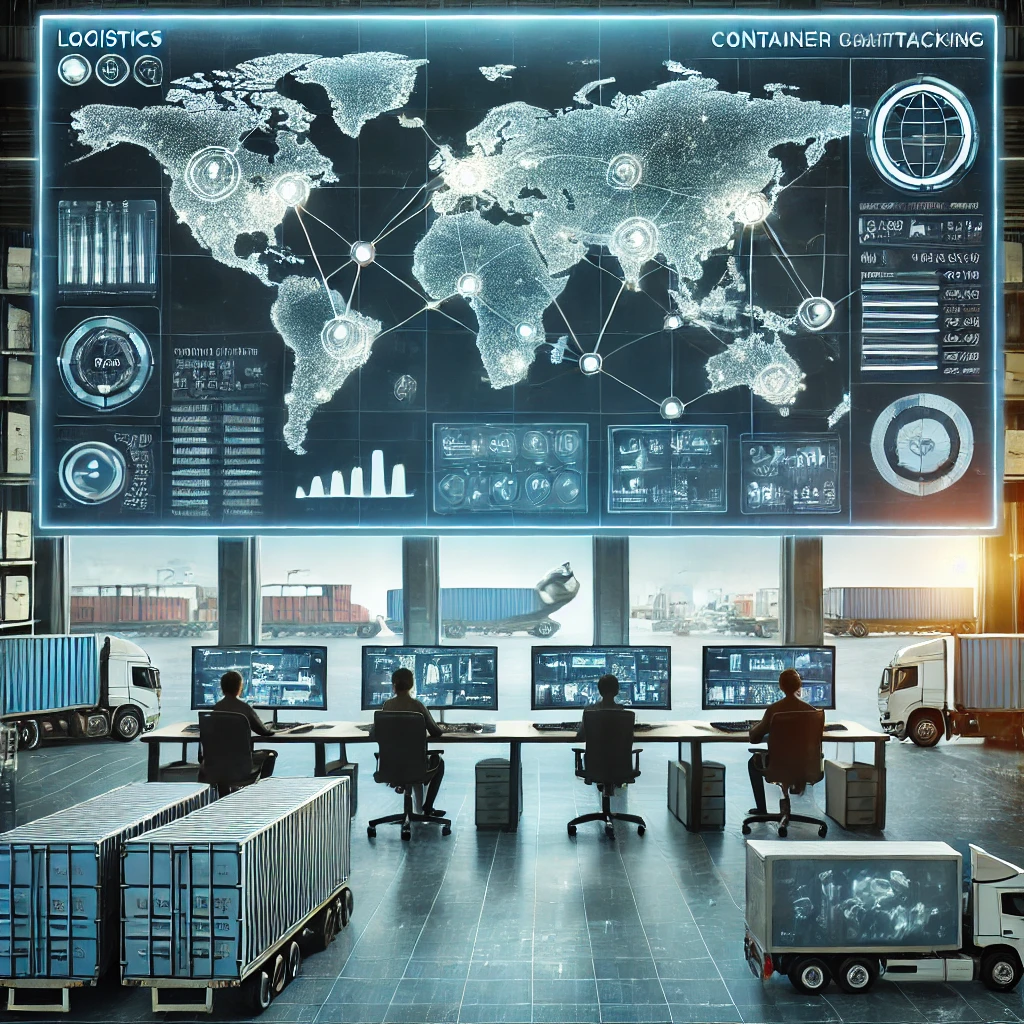Top Platforms for Effective Container Tracking: A Comprehensive Overview

Why Container Tracking Platforms Matter in Logistics
Container tracking platforms offer logistics companies and stakeholders the ability to monitor containers in real-time, across different transportation modes, including sea, rail, and land. With container tracking, businesses gain insights into container status, delays, customs clearance, and even disruptions, enabling proactive issue resolution.
Here are some reasons why container tracking platforms are indispensable for logistics operations:
- Real-Time Visibility: Stay updated on container locations and status throughout its journey.
- Optimized Supply Chain: Improve operational efficiency, manage delays, and minimize disruptions.
- Proactive Alerts: Get notified about potential issues before they affect delivery schedules.
- Better Customer Experience: Offer transparent, accurate, and timely updates to customers on their shipments.
Key Features of Top Container Tracking Platforms
The best container tracking platforms come with various features designed to offer maximum visibility, improve efficiency, and simplify logistics management. These platforms typically include:
1. Real-Time Tracking and Updates
Real-time tracking is the most fundamental feature of any container tracking platform. It allows logistics companies to monitor the exact location of containers at any given time.
- How It Works: GPS-enabled sensors or RFID tags track the container’s movement from the moment it’s loaded onto a carrier until it reaches its final destination. These updates are transmitted to the container tracking platform, offering continuous visibility.
- Benefits:
- Stay informed of the container’s status and location.
- Identify delays and take necessary action to resolve them.
- Proactively manage routes to avoid unnecessary delays.
2. Multi-Carrier Support
In the world of global shipping, containers often travel across multiple carriers and modes of transport. Multi-carrier support ensures that your platform can provide updates on containers, regardless of the carrier.
- How It Works: A good container tracking platform will integrate data from various shipping lines, rail companies, and truck carriers to give you an end-to-end view of your shipment.
- Benefits:
- Track shipments from various carriers in one centralized system.
- Simplified process for monitoring container movements across different modes of transport.
3. Integration with Other Logistics Systems
Top container tracking platforms often integrate with other logistics software systems such as Warehouse Management Systems (WMS), Transportation Management Systems (TMS), and Enterprise Resource Planning (ERP) systems.
- How It Works: These integrations allow the container tracking platform to automatically update inventory, track shipping costs, and maintain seamless coordination across different departments.
- Benefits:
- Streamlined operations with integrated workflows.
- Enhanced data accuracy and improved decision-making capabilities.
- Efficient inventory and cost management.

4. Predictive Analytics
Predictive analytics is a feature in many modern container tracking platforms that uses historical data to forecast potential delays, shipping times, and other operational concerns. This helps businesses make data-driven decisions to optimize routes and improve container management.
- How It Works: The platform analyzes past shipment data, such as delays, weather conditions, and customs clearance times, to predict future shipping outcomes and potential disruptions.
- Benefits:
- Better route optimization and fewer delays.
- Improved forecasting of delivery times.
- Enhanced decision-making based on predictive insights.
5. Automated Alerts and Notifications
Automated alerts and notifications keep stakeholders informed of important updates during the shipment process. These alerts may include notifications of a container’s arrival at specific checkpoints, delays, or customs clearance status.
- How It Works: The platform automatically sends alerts via email, text, or app notifications based on predefined triggers, such as arrival at port, transit delays, or when containers clear customs.
- Benefits:
- Keep all stakeholders updated without manual effort.
- Proactively resolve issues before they cause significant delays.
- Improve communication and transparency throughout the supply chain.
Top Container Tracking Platforms for Logistics Professionals
There are numerous container tracking platforms available in the market, each with its unique set of features and capabilities. Below are some of the top container tracking platforms that logistics professionals rely on to enhance their operations.
1. Project44
Project44 is one of the leading global visibility platforms that offers real-time tracking, predictive analytics, and end-to-end visibility across multiple transportation modes.
- Key Features: Real-time tracking, multi-modal visibility, predictive analytics, integration with TMS and ERP systems.
- Best For: Large logistics providers and freight forwarders looking for a comprehensive, multi-modal solution with advanced analytics.
2. FourKites
FourKites provides an advanced supply chain visibility platform, offering real-time tracking of containers and other shipments. It also uses predictive analytics to provide insights on potential delays and optimize routes.
- Key Features: Multi-modal tracking, predictive analytics, real-time alerts, and customizable reporting.
- Best For: Freight forwarders and logistics companies seeking global visibility and predictive insights into container shipments.

CargoSmart
CargoSmart is a popular container tracking solution that integrates with multiple carriers and ports, providing real-time container status and schedule updates.
- Key Features: Real-time tracking, carrier integration, predictive analytics, and schedule optimization.
- Best For: Importers, exporters, and logistics providers who need seamless coordination with multiple carriers and port terminals.
Transporeon
Transporeon is a cloud-based logistics platform that offers real-time shipment tracking, multi-modal transport visibility, and predictive analytics for containers.
- Key Features: Multi-modal tracking, predictive analytics, automated alerts, and integration with other logistics software systems.
- Best For: Companies seeking flexible, user-friendly container tracking solutions with robust reporting features.
Savi Technology
Savi Technology offers an IoT-based container tracking solution designed for real-time monitoring of shipments, with integration capabilities for other logistics systems.
- Key Features: IoT-based tracking, real-time updates, predictive analytics, and compliance monitoring.
- Best For: Logistics companies looking for IoT-enabled solutions to enhance container tracking and operational visibility.
Conclusion
Effective container tracking is a fundamental part of modern logistics, allowing businesses to streamline their operations, improve supply chain visibility, and ensure on-time deliveries. With the right platform, importers, exporters, and logistics companies can optimize container management, minimize delays, and provide better service to their customers.
By choosing one of the top container tracking platforms mentioned in this article, businesses can enhance their tracking capabilities, reduce operational inefficiencies, and gain a competitive edge in the global logistics industry. Whether you need real-time visibility, predictive analytics, or integration with other systems, these platforms offer powerful solutions for efficient container tracking.
